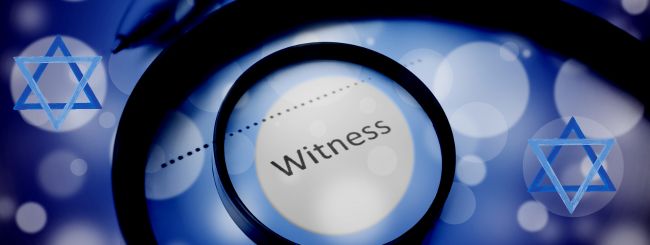בס”ד
שִׁמְעוֹן בֶּן שָׁטָח אוֹמֵר, הֱוֵי מַרְבֶּה לַחְקֹר אֶת הָעֵדִים, וֶהֱוֵי זָהִיר בִּדְבָרֶיךָ, שֶׁמָּא מִתּוֹכָם יִלְמְדוּ לְשַׁקֵּר
Shimon ben Shetach used to say: be thorough in the interrogation of witnesses, and be careful with your words, lest from them they learn to lie.
The previous verse was about righteous judges, among other things. A righteous judge should question witnesses carefully, especially questioning them and trying to find out whether they are telling the truth or not. The judge must ask a lot of questions like:
Where did it take place, what time was it, what date was it, what was the color of the clothes the person was wearing, what was the color of the ground the person was standing on, what did the surroundings look like, etc.
Above all, by asking good questions, the truth comes out. When people tell lies, they eventually get caught up in it.
Bartenura on the words: “But be careful with your words”
That the judge not say, “Maybe the act was like so and so;” or “If the matter had been like so, x would be innocent” – and from these words, the litigant or the witnesses learn to say something that did not [happen].
Afterall witnesses in a trial are important and if they lie about an event, and the judge believe them, someone can be punished for an act they did not commit.
But we are not all judges, nor will we have to act as witnesses on a regular basis. What can we learn from this Mishnah?
First, that we should be careful with our words. Our words may contain suggestive questions about a person, which others may perceive as truth. When they start passing that on to others, they are telling a lie about a person, condemning them for an act they did not commit.
In Isaiah 43:10 we read:
אַתֶּ֤ם עֵדַי֙ נְאֻם-ד’ וְעַבְדִּ֖י אֲשֶׁ֣ר בָּחָ֑רְתִּי
My witnesses are you (Israel)
-declares G-d –
My servant, whom I have chosen.
Israel is G-ds witness, witness for the world. She does not so much need to testify that there is a G-d. After all, any right-thinking person can figure out that there must be a G-d. After all, how could the world come into being out of nothing. For a big bang, you need at least two elements colliding…where did they come from…?
They must bear witness to His good care. When we read on in Isaiah we read:
Who made a road through the sea. And a path through mighty waters, … I will make a road through the wilderness. And rivers in the desert … The wild beasts shall honor Me, Jackals, and ostriches. For I provide water in the wilderness, rivers in the desert, to give drink to My chosen people.
What we read are examples of how G-d cared for His people in the desert. And not just in the desert but throughout history. At the time when the people had their own land and at the time of the exile and today. The people must bear witness to G-d’s interference and care for them, and for the whole world. G-d is not a G-d from a distant distance, but an involved G-d who wants to be near, with each one of us.
History shows G-d’s faithfulness to His people. When they bear witness to this, we know – because we can see it with our own eyes – that their testimony is true. But we also read in the text above that we need to challenge witnesses with good questions and ask through.
That is what Noahides need to do. Asking questions and asking more questions. How do Noahides come to have a good relationship with G-d. In what way is G-d involved with us, in what way and manner does He care for us, etc.? Pull the people’s jacket and ask.
By Angelique Sijbolts
Sources:
1 Pirkei Avot 1:9
2 Chabad Video: Examine the Witnesses Exceedingly
Texts: Sefaria.org
© Copyright, all rights reserved. If you enjoyed this article, we encourage you to distribute it further.
